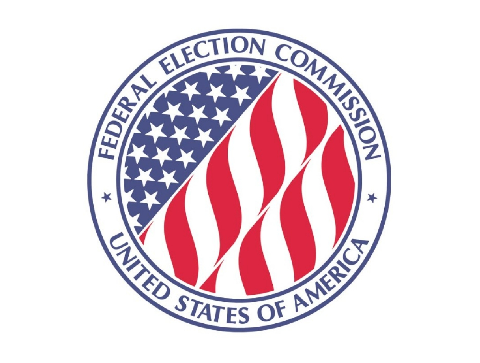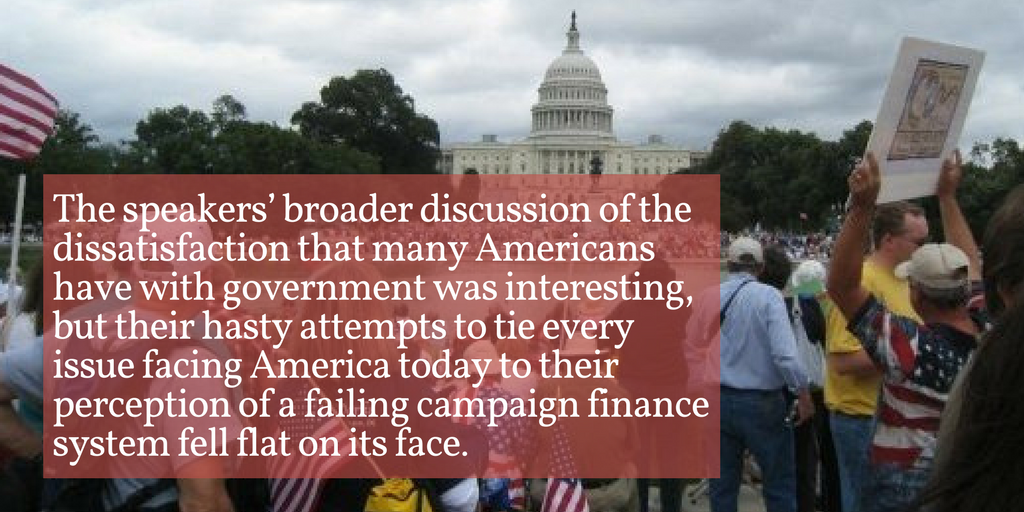The Federal Election Commission recently voted along party lines on the issue of whether to impose sanctions on a nonprofit that posted a video on YouTube (for free) critical of Senator Rand Paul’s (R-KY) position on the Iranian nuclear deal without first reporting publication of the video to the agency.
The Democratic commissioners have voted repeatedly to regulate online political speech, suggesting essentially that any even remotely political material placed on the internet by any group that receives any sort of funding must follow the same regulations that are imposed on political groups (like candidates, political parties, PACs, and super PACs) when they pay for ads in any other context. According to the reasoning of these commissioners, it doesn’t matter if the content is placed online for free because this is simply a way for groups to work around the regulations that are in place.
Importantly, existing FEC regulations subject paid online political content to the same disclosure mandates as any other paid political advertising. So, a paid ad that runs after a YouTube video has to follow the same disclaimer and disclosure rules as an ad that runs after an ABC News broadcast. But this does not seem to be enough for the Democratic commissioners, who recognize that the internet is becoming increasingly important for political speech and therefore would like to widen the agency’s regulatory net over this growing medium. They are clearly irked by the fact that some groups are posting videos online for anyone to freely view, without first asking for the FEC’s blessing.
To be fair, none of these commissioners have explicitly suggested yet that individual social media users or bloggers should have to abide by any FEC regulations. Anyone can see that regulating the speech of private citizens who are simply expressing political ideas on the internet would be absurd, unworkable, and an obvious violation of the First Amendment. Or can they?
Really, what is the difference between a group of citizens pooling their resources together in order to express political ideas on the internet and one person sitting behind a computer screen making political Facebook statuses or posting links to articles that support his or her political beliefs? Yes, independent groups or advocacy nonprofits can be organized and sometimes well-funded, but they are still doing nothing more than what private citizens do every hour of every day when they express their political opinions or ideas online. Anyone who views freely published content on the internet is doing so of his or her own free will, and regardless of the creator, more speech is always good.
Why does the fact that organization and effective communication often require funding suddenly make the speech that is produced by these efforts worthy of costly regulation? No, money is not speech. But, short of standing and shouting on a street corner, speech almost always requires money. An individual Twitter user has to purchase a computer and internet access to post online. A vlogger must buy a webcam to make her viral video supporting candidate X. Free speech is not always cost free, but this should not mean that speech produced by an organized group of people is any less protected by the First Amendment.
Regulations requiring disclosure and disclaimers for unpaid internet communications would achieve little more than burdening groups with additional costs. Speech regulations almost always end up capturing more people than the authors initially intended, and smaller groups would undoubtedly be disproportionately affected by additional requirements. Tasks such as record keeping are much easier for well-staffed super PACs buying TV ads than for any citizen group that wants to post a video online. So more regulation of political speech on the internet would not only chill speech in a broad sense, but more specifically, it would block out smaller groups with less funding necessary for complying with such complex regulations.
The pro-regulation commissioners appear to think that free internet communications are just a clever way to skirt their regulations. It is rather ironic that they choose to speak about evading current rules, considering they would like to completely ignore the Commission’s current rule exempting unpaid online communications from government reporting requirements.
Media organizations, professional bloggers, and influential celebrities can post whatever they want on the internet, political or otherwise, and nobody would suggest that these entities should have to file with the FEC before posting. To suggest that nonprofits must first disclose political content to the FEC before sharing it on the internet, as the Democratic commissioners have repeatedly done, is to say that organized groups must get permission from the federal government before sharing information related to policy issues. This suggestion should make anyone who even slightly understands the value of free speech at least a little bit uncomfortable.














